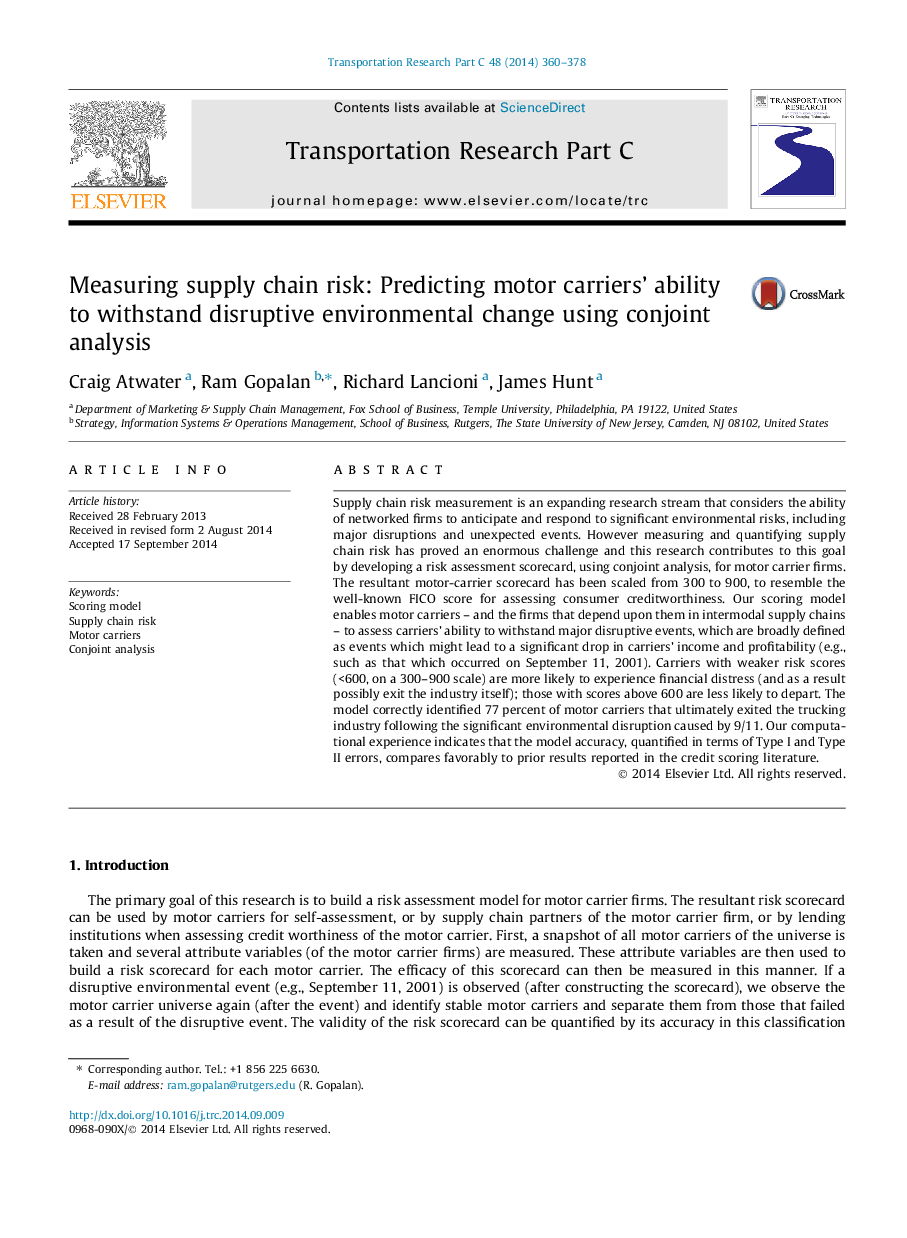| Article ID | Journal | Published Year | Pages | File Type |
|---|---|---|---|---|
| 6937017 | Transportation Research Part C: Emerging Technologies | 2014 | 19 Pages |
Abstract
Supply chain risk measurement is an expanding research stream that considers the ability of networked firms to anticipate and respond to significant environmental risks, including major disruptions and unexpected events. However measuring and quantifying supply chain risk has proved an enormous challenge and this research contributes to this goal by developing a risk assessment scorecard, using conjoint analysis, for motor carrier firms. The resultant motor-carrier scorecard has been scaled from 300 to 900, to resemble the well-known FICO score for assessing consumer creditworthiness. Our scoring model enables motor carriers - and the firms that depend upon them in intermodal supply chains - to assess carriers' ability to withstand major disruptive events, which are broadly defined as events which might lead to a significant drop in carriers' income and profitability (e.g., such as that which occurred on September 11, 2001). Carriers with weaker risk scores (<600, on a 300-900 scale) are more likely to experience financial distress (and as a result possibly exit the industry itself); those with scores above 600 are less likely to depart. The model correctly identified 77 percent of motor carriers that ultimately exited the trucking industry following the significant environmental disruption caused by 9/11. Our computational experience indicates that the model accuracy, quantified in terms of Type I and Type II errors, compares favorably to prior results reported in the credit scoring literature.
Related Topics
Physical Sciences and Engineering
Computer Science
Computer Science Applications
Authors
Craig Atwater, Ram Gopalan, Richard Lancioni, James Hunt,
